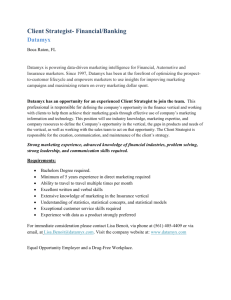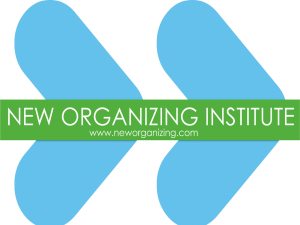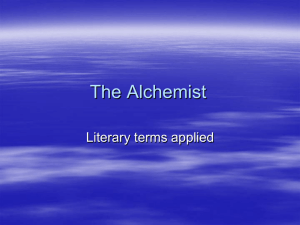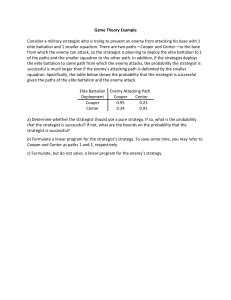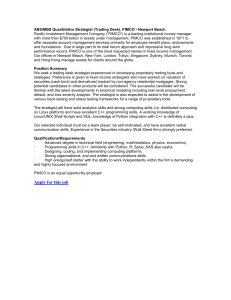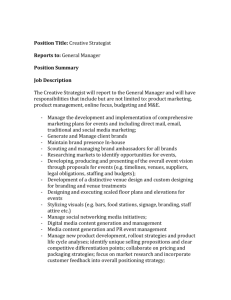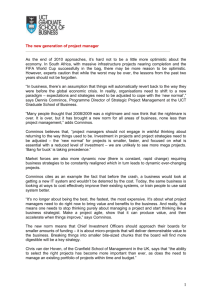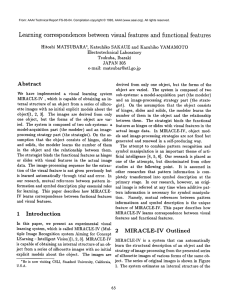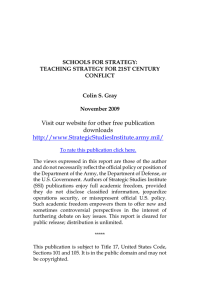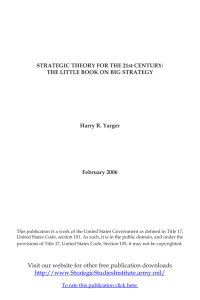Seven Transformations of Leadership
advertisement
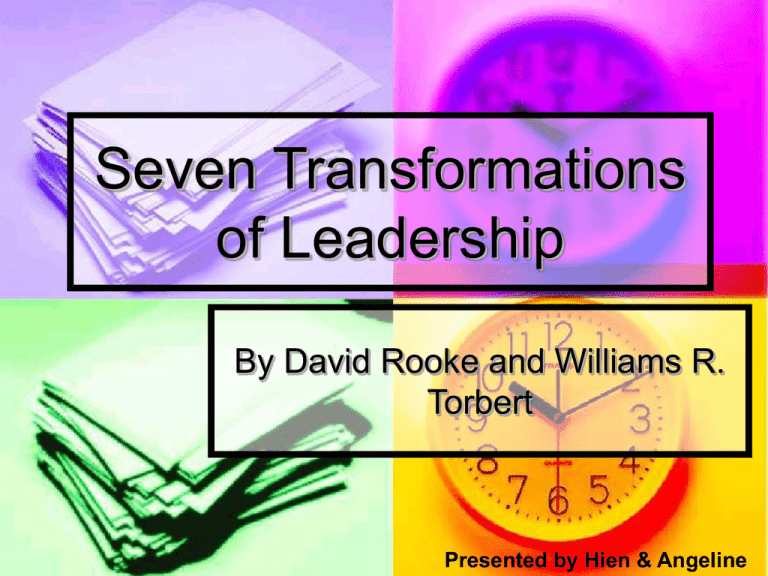
Seven Transformations of Leadership By David Rooke and Williams R. Torbert Presented by Hien & Angeline Research & Action Logic Article a result of survey basedresearch or managers & professionals. Action logic: How leaders interpret their surroundings & how they react when power or safety is challenged. 7 Action Logics Opportunist Diplomat Expert Achiever Individualist Strategist Alchemist The Opportunist Focus on personal wins & controlling external environment People are an opportunity for exploitation Legitimize unethical behavior Reject feedback Externalize blame The Diplomat Focused on gaining control of own behavior Conform to group Avoid/Ignore conflict Supportive + help bring people together The Expert Perfecting knowledge Data and logic Focus on continuous improvement, efficiency and perfection Always think they are always right “I don’t do feelings, I’ll leave that to Barry Manilow” The Achiever Team orientation Open to feedback Concerned with meeting goals Inhibit thinking outside of the box The Individualist Abstract thinkers Interweave competing personal and company action logics Resolve gaps between strategy and performance The Strategist Focus on organization constraints and perceptions Strategist masters the second-order organizational impact of actions & agreements Adept at creating shared visions across different action logics. which they treat as discussable and transformable (both personal and organization transformation) Deal with conflict more comfortable They are better at handling people instinctive resistance to change The Strategist Three distinct levels of social interplay Personal relationship Organization relationship National and international developments Example Bavaria a CEO back in 1985 measured as a strategist The Alchemist Ability to renew or even reinvent themselves and their organizations in historically significant ways Has an extraordinary capacity to deal simultaneously with many situations at multiple levels Alchemist can talk with both kings and commoners The Alchemist Can deal with immediate priorities yet never lost sight of long term goals Alchemists individuals who live by high moral standards Mainly focus intensely on the truth Example: Nelson Mandela To Strategist and Beyond The Strategist and Alchemist action logics is qualitatively May seek spiritual and ethical guidance from mentors Mutual mentoring with peers who are already part of their networks Seven Ways of Leading Leadership Teams and Leadership Cultures within Organizations The most effective teams are those with a strategist culture The group sees business challenges as opportunities for growth and learning on the part of both individuals and the organization Most senior manager teams operate at the Achiever action logic They prefer unambiguous targets and deadlines, and working with clear strategies, tactics, and plans, often against tight deadlines Leadership Teams and Leadership cultures within Organizations For mature companies where senior management teams operate as Experts Vice presidents see themselves as chiefs and their “teams” as an information-reporting formality In creative, Consulting and nonprofit organizations are Individualist teams The END
